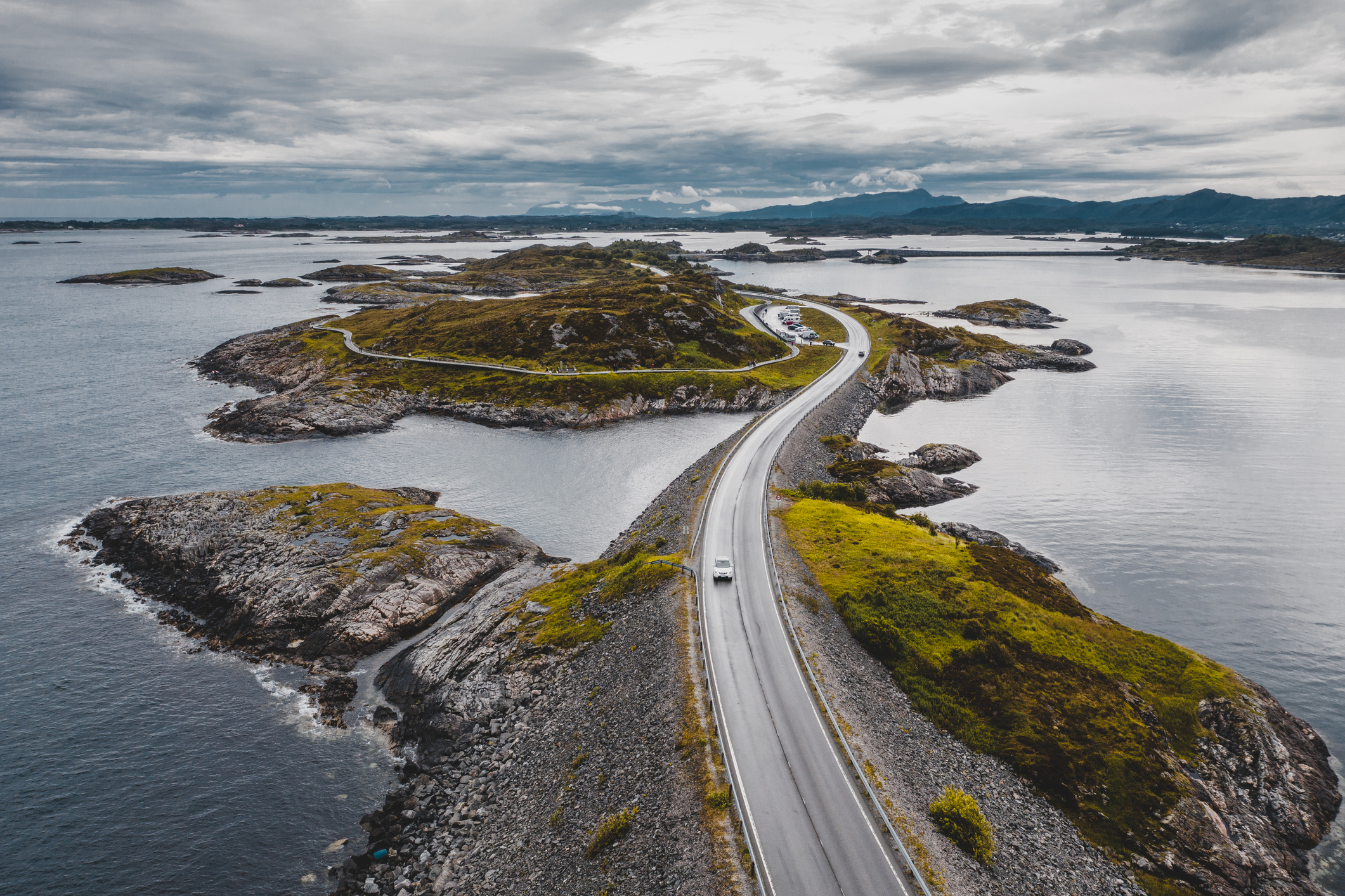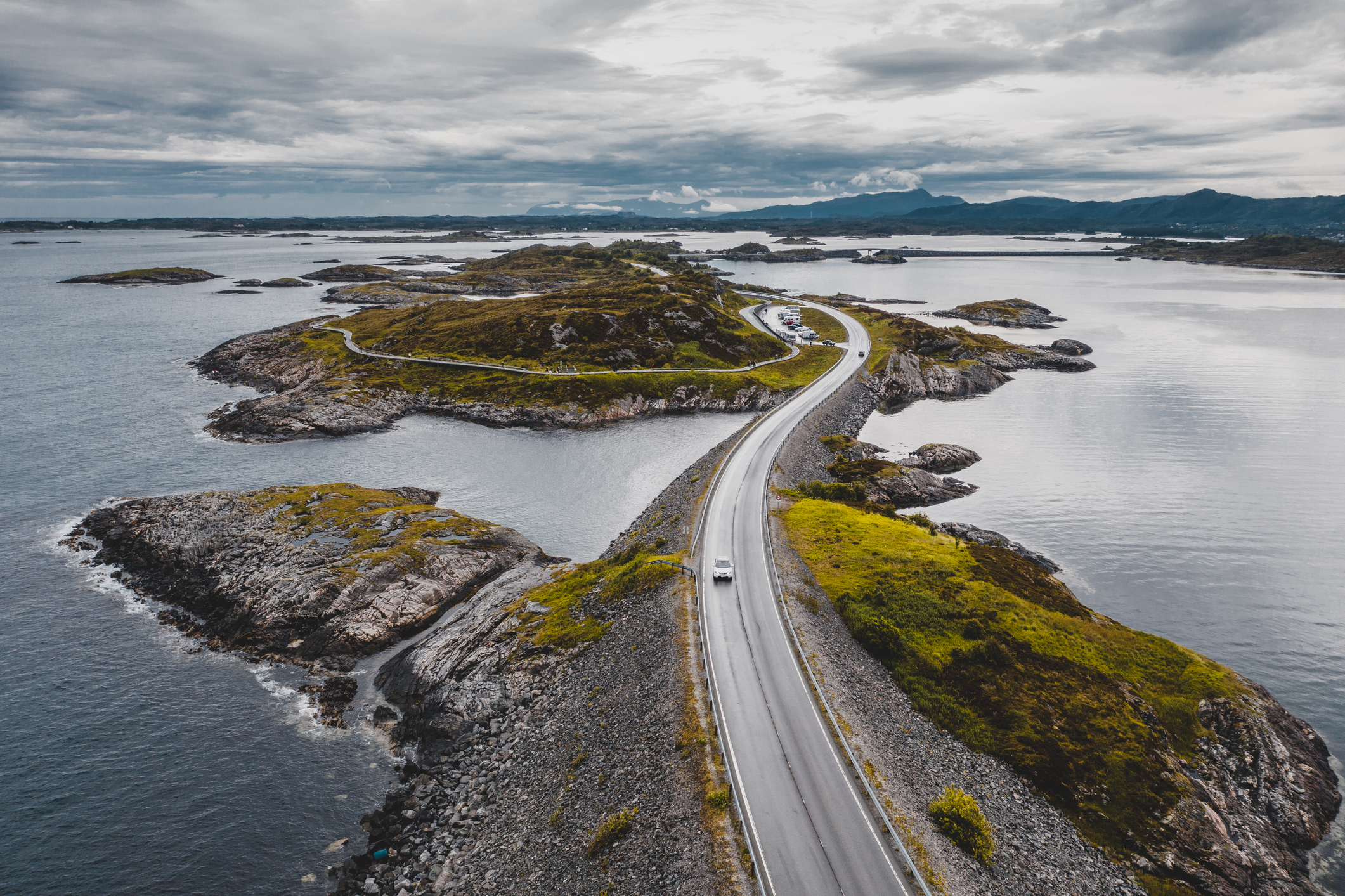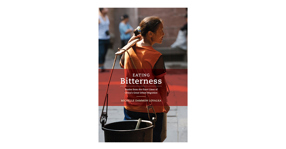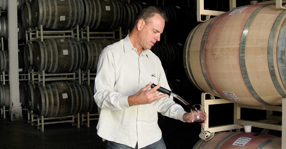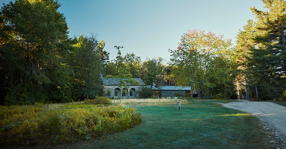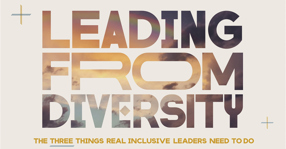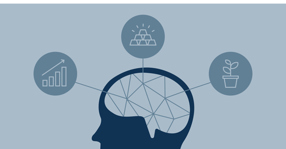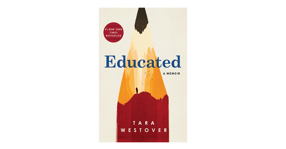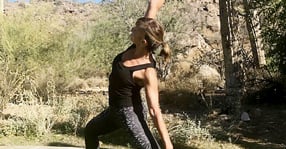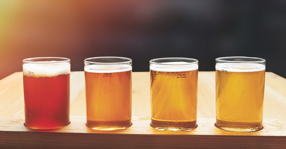We’re pleased to provide you with insights like these from Boston Private. Boston Private is now an SVB company. Together we’re well positioned to offer you the service, understanding, guidance and solutions to help you discover opportunities and build wealth – now and in the future.
People everywhere are tired, concerned, and confused. As the pandemic wears on, it has intersected with the rise of AI, climate challenge, political, social, and financial change. The term “present-future” describes these accelerated, chaotic circumstances.
How are you handling all of this? Questions abound about the future of work, the concept of family, and the relevance of education. What are your challenges in thriving and moving ahead with joy, calm, clarity, and purpose?
To help maintain stability in our personal and professional lives, we’ve partnered with Stephen Rudin, MD, and Sofia Sunaga, renowned experts in transformative neurocognitive skills and gathering for purpose. They work with individuals, families, and family offices across the US, internationally, and across generations.
Listen to our lively, interactive discussion on acquiring the most sought-after skills and experiences to thrive in the present future.
Speakers
Marc Tabah, Managing Director, SVB Private
Stephen Rudin, MD, Intergen Family
Sofia Sunaga, Intergen Family
Audio transcription
Marc: Good afternoon, everyone. Welcome to our SVB Private Webinar, "Thriving in the "Present Future": Calm, Clarity, and Purpose in a World Gone Vague." I'm Marc Tabah, managing director at SVB Private. On behalf of my colleagues, many of whom have invited you to this session, we sincerely thank you for attending, for taking time out of your very busy schedule to join us today. When we talk about wealth at SVB Private, we think broadly about the pillars of a satisfying and fulfilling life, and financial success may or may not be one of those pillars. We'll dig into this today as there are many forms of capital. We have to think about all of them. I'm here to moderate this panel with our guests, Dr. Stephen Rudin and Sofia Sunaga, two experts in their fields.
We invite you to collaborate and interact with us during these next 45 minutes or so to connect through the chat button, to ask questions. Sofia and I will do our best to address them all. And if they go unanswered, we'll follow up with you, so please leave your name. Please do not hesitate to ask.
Our objective today is for you to come away with some new ideas, some new tools, acknowledging the challenges that we're facing today, creating a mindset to confront obstacles, and in the end, try to impart on you some skills and frameworks for navigating what is a very difficult environment right now. This is no small task, obviously, and we will only scratch the surface today. But hopefully, what we do is encourage you to continue the hard work, the work that you'll do on your own, and with your families, to move down that path of progress. So, let me introduce our guests, two great thought leaders, two community builders, two wonderful friends.
Dr. Stephen Rudin has devoted himself and has forged a career in helping children, young adults, families of all ages, to unlock their potential through his experiential methods of transformative neuro-cognitive skill development. And Stephen, throughout his career, started numerous companies in the mentoring leadership fields and has authored curriculum for thriving in the present future that we're talking about today. Joining Stephen and I is Sofia Sunaga. Sofia is a founder, along with her husband, David Chang, of the INTERGEN Initiative, Nexus Purpose Labs and Hosting Futures. Sofia is responsible for building cultural, relational, and technological infrastructure on which the INTERGEN Initiative stands. She does so by merging some unique experiences, unique knowledge, and study of the family wealth ecosystem gleaned over the past 15 years. So, where do we start? Let's start by examining the terms present future and a world gone vague. We'll explore how families, individuals, can acquire skills and experiences to thrive. And we'll do that by starting off with Stephen to set the stage. Over to you, Steve. Thank you.
Stephen: Hello, everybody out there. I don't have the courage that Marc does to say good afternoon because in truth, we don't know where all of you are. We don't know what time of day it is. And because this is a bank webinar, we don't know your names. But let me invite you, in the very beginning, to form a cloud of connection between us. Say hello. Tell us your feelings, your thoughts, anywhere that you would like to. We'll really welcome them. The present future... The origin of the present future, which represents a time in which anticipated changes, for instance, AI intercalating itself into the business world, would that displace jobs? What would the future of work look like? What's the value of an education?
Basically, you know, our best college is still mostly a second industrial revolution education. Is that gonna be meaningful and worthwhile to our children? Or the political turmoil, the pandemic came on top of that? Even though many people... I'm a doc in my previous life, many of us anticipated some type of pandemic, certainly, Bill Gates, many other people warned about it, but it happened. And when it happened, we kind of got crushed by everything. So, we're sequestered in different places. We are separated in different places. And so the term present future helps us get a handle on that and just refer to what... We have a common kind of knowledge about what we're talking about.
And what does that present future do to most of us? That's where the phrase "a world going vague" came from. Certainly, many of you are significantly accomplished at what you're doing your work, how you make your capitals work for yourselves, and your families, how you navigate the world. You probably wouldn't be a SVB Private client if you didn't have some degree of success and joyful thriving in some of that. Nevertheless, it's not clear that past experience is the best predictor of future success anymore. It's so different. So, that's where the phrase "a world going vague" is. And I'll just say at this very moment, there's some additional vagary.
Even as the pandemic aspects begin to pull away somewhat, some people are vague about whether they wanna go back to what they had before. It's not clear that there isn't more joy and thriving for them, even in this strange world. So, that's the reason for the topic, "Thriving in the Present Future." We'd like to take a moment to get out of the experience many of us have had for years. So, whether or not you've carefully locked yourself up with your children and your family, we have been a bit braver if a business had to travel or not, it certainly isn't what we'd hoped for. So, our mentor, James, one of the giants of the family wealth advisory, early on taught Sofia and I an exercise, and we'd like to adapt it for the moment. Just if you'll bear with us for a moment or two, I think you might find it provokes some really good responses when we continue the webinar. Sofia?
Sofia: Thank you, Stephen. So, we're moving into a little bit of the practice, the whole intention why we're here. And if you could help us in that intent, will be great. As Stephen mentioned, the vagary even in this space... So, as much as you can name or location or what has become vague to you. What of this... What brought you to this conversation? All of that information, whatever you share with us, will be able to give us ourselves a little bit more clarity as well to make it more relevant to all of you watching. But we would move into the practice of visualization, so then we get really hands-on here.
Visualize Your Vague Space (7:38)
Stephen: So, we'd like to invite you... If you're comfortable with it, we'd like to invite you to close your eyes for a moment. If you're in a place that's safe and you're comfortable, we'd like to invite you to close your eyes. If not just, you know, put yourself in a quiet or relaxed place for a moment so we can do this exercise. And to begin, in this place of comfort, if you could just imagine what is historically your favorite place in the world, where you like to be more than anywhere else, where you've been that was your favorite place. Let it just sit down and be with that for a moment.
Sofia: And while you're there at that place in your mind's eye, in your experience, and bringing in a little bit of the senses. What in that place would you feel on your skin? How is the temperature? What is the smells in the air, the scents? Where are your feet? What are some of the textures? Just to bring ourselves fully into the experience of that place that you really, really love and appreciate.
Stephen: And if you can bring yourself to remember the sounds, the acoustic sensibility of where you were. Was it the sea? Was there a beautiful concerto playing, Tango music in the background? What was there in that moment that was so precious, that mattered so much to you? Engage all of your senses. Maybe we can kind of conjure up some cross synesthesia where the senses are encouraging each other, to bring yourself fully back to that place, make it as vivid as you can.
Sofia: And now, in that vivid place, just imagine now all the people whom you love the most together with you at that place, and that space. And imagine, what are you doing together? What are some of the activities, even some of the sounds, maybe some of the food or what you have...you're sharing in that environment? Just bring that a little bit more to your attention now.
Stephen: And as a final element, if you aren't already doing it, we'd like to encourage you to take a deep breath. In whatever manner you're accustomed to your breathing, diaphragmatically, upper xiphoid, just let the flow of the air into your body help you. Breathe it in and then deeply exhale with gratitude where that place was and everything about it, and how meaningful and important it is to you in your life.
Sofia: In this space now we would, again, invite... What was it? What have you experienced? Where were you? I know I was back in Brazil where I was born and raised. Maybe if you'll share a little bit, Marc, or even Stephen while folks are entering a little bit on the chat. Yes, where were you?
Stephen: Where were you?
Sofia: What were some of the experiences? So, Marc is saying seaside.
Marc: 7:00 a.m. I have my dog in my side. I'm barefooted. I'm walking with the sun on my back on a beach. Sand between my toes. Gentle breeze. Not a care in the world.
Stephen: How beautiful.
Sofia: Part of our sharing here is just the idea of expanding or bringing in a physical experience of thriving, so that we're really bringing in the expansion beyond thriving sometimes being mentioned in...financially speaking but to really bring in all our senses, our loved ones, and the multiple forms of...really, really the multiple components that are part of the experience of wealth.
Stephen: I can kind of hear James saying to us, "What we're really experiencing when we're going through that kind of exercise is, you're experiencing all the capitals of your wealth. You're connecting with who you care the most about, who you love, in a place of your peace, in a place with the people that you care about, an altitude that makes you feel that you're just where you belong." So, certainly, that's part of what's become, for almost everybody, disrupted during the past year. Even if you can make an effort to get to your favorite place or be with some of your favorite people, it's most extraordinary to even have captured part of that in a way, in a framework, that we've all just visualized and imagined.
So, our conversation today, which is really in three parts about how you have your calm in a circumstance like the one we're in, when there's so much vagary. And please, continue to send in whatever might be vague for you right now. Our friend Roy Bahat has written, "What is the future of..." This will give you some vague and some discomfort. Roy Bahat used to work for Bloomberg industries and is a person who finances companies to thrive, you know, in an era of AI, acknowledges that it will displace a lot of people from work, including people in very high-end jobs. That absent certain human skills, work will change. That's going to cause a sense of vague uncertainty. Will it be me? What does it mean in preparing people? What does it mean in recruiting people to work with us? Is there uncertainty about what our companies will look like, what our relevance will be?
So, I think, in looking ahead, no matter what the circumstance is gonna be, we wanna put ourselves in a place where we can bring our best skill...have access to our best skills and our best funds of knowledge to deal with it. So, as we kind of divided this kind of webinar up we thought about, let's talk for a moment about calm. Let's briefly talk about clarity. And then a bit more about purpose, and what that means. Has your purpose changed out of necessity? Maybe for the good. Maybe you found a different or a higher purpose during this time or maybe you'll need a realignment and purpose. So, let's talk first about how we might maintain calm.
Calmness (16:20)
Physiologically, we're not built to always be calm. We have a life-saving fight or flight mechanism. But we can't exist in that weakness. Most of our capabilities don't hold up when we're under constant stress. Even the theory that a little bit of stress is good for you all the time is coming under some re-examination. So, in a sense, I think the author, Lisa Genova, just has a new book out, in which she's talking about mastering your mind. She's a wonderful, you know, neuro-cognitive scientist.
You need to have some ways you can show what's firing and what's going on, meaning in your neural circuitry. So, we could think first about breath. Although let me say that Sofia has said many times that calm and breath may partly be different in younger generations, meaning, I think a lot of us think we'll breathe for calm. And physiologically, that's true for everyone, but younger generations don't necessarily get together and go, "Om." That may not be... They may be calmed, I think Sofia said to me recently, by the gathering itself. They were raised almost as a succision, almost as a connected group of neurons.
And so, when they're apart from that, they're uncomfortable. And so when we, as parents go, you know, "Get off of that network," we need to think about the fact we may actually be disrupting what brings their calm and, in fact, their capability. But for the moment, we're talking about breath and the different ways that we can bring our breath to help us have a calm physiology and a calm mental outlook in approaching what we're dealing with right now.
Certainly, there are different types of breath. I imagine that at some point or another everybody has gone to a class either for deep breathing or for yogic breathing or for mindfulness and mindfulness breathing. I'll talk for a moment about mindfulness. We'll come back to this when we talk about purpose. But if at any point you can sit, it's not necessary to sit in a severe posture, any place where you have some alignment of breath, a straight back is helpful. But only if you can do that, you rise if you can, you sit if you can. If you get into place where you can draw a breath and feel yourself inhale, and be conscious of that breath either in your abdomen or your xiphoid or higher up or your ears or your nose. If you can feel the breath coming in and exhaling, coming in and exhaling, by itself that's calming.
And that's true in any variety of circumstances. The navy seals are a group of people that are under some stress and they do a thing called box breathing. To put themselves in a place of better calm and clarity, they breathe in, they hold the space, they breathe out, they hold the space. They breathe in and hold the space, they breathe out, as if you were dancing box step. In, pause, out, pause, in, pause, out, pause.
I'm sure that those seals don't do it... They're pretty much accountable for every second they have for survival. I'm sure they do it because it's beneficial to their physiology. And they also do...many people in military special service do mindfulness work. So, in addition to the breathing, whether there's a pause or not, if anything comes into your mind, not following it down a rabbit hole, but just allowing it to kind of fall away from your upper consciousness, and just let it kind of flow out of you, staying aware of what came into mind. It could be a sound. There's birds chirping out my window, I hear it, but I'm not following it. I'm in this podcast. Whatever comes in, to just be aware while you're breathing and to just not get caught up in following the individual thing will be helpful with your calm.
And as a final thing, if emotions come up...emotions can always have an effect on whether or not we're calm, in particular. And so, if something comes up emotionally, it could be a person or an incident, a practice that goes with mindful breathing or mindfulness is heartfulness or metta. And in a simple explanation, in heartfulness, you don't have to love or be thrilled about every circumstance that happens, but the general recognition of human frailty and kind of limits of human capability, if that emotion comes up around someone, if you can just come to an equanimity, to a general acceptance of it without kind of having it become an emotional issue for you, that will also add to your calm. So, mindfulness is helpful in calm. Mindful breathing is helpful in calm.
Clarity (22:09)
Sofia: So, in mentioning mindfulness too, we're coming to the theme of clarity. And part of what we're sharing here, Stephen and I, is that imagine these three elements, calm, clarity, and purpose, as smaller parts of a greater whole, right? So, every time you increase one, you're likely to increase the other. So, the more calm you have, likely, the more clarity. So, the more clarity you have, likely, the more calm. And purpose comes into that equation as well. So, imagine they're all part of this more complex system, so to speak. But by working with them individually, we're enhancing all of them, at the same time.
So, in terms of clarity, what feels really, really key through these experiences and the practice that had is that writing. Pen and paper is still a very effective if not the most effective... And I asked Stephen to tell the little story about writing pen and paper, how that actually supports physiologically our capacity for understanding what's happening with ourselves outside.
So, here, part of what I wanted to do is demystify the whole idea of journaling, that it has to be super poetic and... No, you need a notebook that's only dedicated for that. It could be just a notepad, whichever style you go with. And imagine collecting data. Imagine becoming a scientist of yourself. Right? And what would be like highlights and lowlights, so to speak, for your day, for example? What I've noticed is that over time, clarity for me, I realized I tend to ask the same questions for whatever reason during the same season. Wow. Three years ago I was asking this exact same question. So, it starts giving you, like, threads and data points as true as an essence or something that you have been...just continue to do over and over again and, all of a sudden, that can give you more handle, so to speak, as to your purpose, right, as we're moving to the next section as well.
And I think... Before the purpose piece, I just wanted to mention very briefly, Stephen, that all the practices we're mentioning here, really, with clarity and the purpose piece, self-awareness, like, what works best for you? So, when Stephen was talking about, for some people it's heartfulness for breath. So, if I'm a very active person, breath is something very accessible that I can pay attention in the moment, right? If I'm a very emotional person, I might need to write so that I go into my cognitive function and exit my emotional space. So, there is a balance between you understanding...having clarity around how you function, who you are, what your needs are, and which practices you will choose. So, we have chosen breath and data collection, generally, as very universal ones that would really work for everybody. And Stephen will go ahead with purpose now.
Stephen: So, Sofia, you had mentioned the reason for writing by hand, with a pencil. One of the wonderful Russian scientists that were originally working on the Palm, if you're old enough to remember having a Palm or a PalmPilot before any of the current devices. I think it was Patichov , I think it was probably those brothers who've gone on to create many pieces of incredibly valuable technology. There was a concern among those scientists that their children would lose the ability to write. And that's why that device had a pen. Do you remember... They didn't need a pen. They had the technological know-how to not have a pen on mobile devices. But they understood that when you press down with your hands on paper or on a pad, the coding that takes place, the neurological wiring and connection that takes place when you write is different than when you keyboard, no matter how elegantly, no matter how quickly. Something different takes place when with a certain amount of pressure and determination, you go through and use your alphabet in whatever language. And so they recognized the importance of that.
And just to dovetail with a wonderful thing she said about journaling and writing, Sofia said, "We all have to find the thing for ourselves." When we're beginning this conversation, really, we're talking to a group of individuals. So, for everybody, finding the method that works for them, whether it's for breath or whether it's for journaling, whether it helps you with your clarity and your recognition or your memory. Lots of people right now have suddenly worried that something is happening to their memory. They're suddenly having early cognitive decline. People in their '50s are suddenly getting Alzheimers and they can't remember their son's birthday. It's not the stress, it's the long time we've been separated. It's the lack of familiar things in our lives, the places we go.
Our memories are reinforced by returning to the places that we visit frequently during the year, seeing people. A lot of that has been disrupted. We don't have the cues. Journaling is a self-determined set of cues. And going back over your journals will reassure you that you haven't lost your mind. You might lose your place, but you haven't lost your mind. And it will be very calming. And since Sofia mentioned that connecting to people is also calming and helpful, you may find your journal very private, but you can choose to find a group of people with whom to pick a subject in your journal or a topic in your journal. Or if you're really brave and wanted to share your journal start a journal club or a Zoom journal. Do something so that your journaling, which gives you...your sense of clarity can be shared, if that's for you. You may find that very helpful.
Purpose (28:40)
And so, to move into the area of purpose, the introduction of saying, in this time that we've just gone through, in this present future, when so much of what we knew and understood has been disrupted, when so much is unclear, how can we move toward that? Obviously, just some breath and just a journal is not gonna solve everything. Whether you wanna get back to how it was or you go, "Oh, my God, don't make me go back to how it was. It's so much better now," that process requires some work and is important. And you can... We, in trying to approach the present future, drew on some other...this term 'the present future,' drew on some other circumstances when...
The New York Times and some other newspapers reported a few years ago that college students were suddenly dropping out in their first year before the year ended with no notice. We asked ourselves, what human skills, what soft skills, what funds of knowledge could make a course correction, not only or necessarily to go back to college, but to come to a place with a purpose and call? And we call that program college train wreck. What happens when your college suddenly got wrecked? It's not that different than this present future except everything's gotten wrecked and it's not just for your college freshmen.
When some people now haven't been able to figure out what to do having lost a year, we revive the program called peak year. What can you do for a year, rather than just go to school, to not only make up for the pandemic year, but for everything you might acquire from the lessons learned from everyone around the planet? If you could spend one year, how could you create a peak year to take that all, to gather it together, and kind of make lemonade from lemons? You can make that better. This particular curriculum, the curriculum for thriving in the present future, is one that people can undertake as an individual or as a family or even as a community to study... I think there are probably some 18 areas in it. But it's not an academic offering. It's an experiential curriculum. How do you go back and find the coordinates of yourself, to help you find what your purpose is in the moment?
I'll tell a story for a second. I'm conscious that we have... We're supposed to go to an executive function, that's supposed to be one of the things they do better than anyone teach that. We have about six minutes left in this podcast. And before Sofia is gonna speak about the beginning of how you kind of examine yourself, I'll just tell a quick story about purpose. These last seven minutes is about purpose. And write in if you have something or email us afterward if you wanna contact. If you've ever seen the movie "Chariots of Fire" or heard of it, it's a story about a British runner and about a Scottish runner that end up in the same Olympics, having never faced each other before, and coming from very different places.
There isn't time to really review all the interesting contrasts about them. But the Scottish runner's name is Eric Liddell. And his purpose in life that he would have stated, his greater purpose, was to become a missionary, to serve God. But he also ends...drifted into running in the Olympics for Scotland, and he's trying to resolve what that means. He seems to have more than one purpose. And he says to a sister with whom he shares the missionary, "I know that God made me for a purpose, but He also made me fast. And when I run, I feel His pleasure." This was a man of great integrity, resolving what his purpose had always been to go into a missionary, it became incredibly important, representing his country at a time when Germany was rising, and they wanted to do as well as they possibly could. In the Olympics, he had to reconcile the two and reconcile the limitations on running on the day of his faith.
So, purpose can have lots of conflict and lots of layers. And that's why in the studying of how to find a purpose now, in the present future, we're anticipating it's pulling away. We find it worthwhile to look at who you are as a person, which Sofia is gonna talk about in second, to take a look at your family. What does its structure look like? What are its values? To review it again in greater detail through a process that allows for re-evaluation, not just historical retelling of what's been handed down from generation to generation. Very importantly, there are neurocognitive skills, emotional intelligence, executive function, mindfulness, resilience, flow, that you can acquire to one extent or another, and change the relationship between stress in your amygdala and your ability to perform tasks and to think which are in your dorsolateral prefrontal cortex. You use this ability to get through this difficulty rather than just get wiped out by it.
So, that's the process that we go through with families, groups, organizations to their betterment, and hopefully, to their aligned purposes. Sofia, it all begins, as you often say, as one individual. And then, if you're really fortunate, it spreads to a community and even becomes a culture. How does the examination as an individual begin, Sofia?
Sofia: I don't know if I'm gonna be able to do all the pieces right now. But one thing, really, that we wanted to gift of this takeaway. So, remembering breath as this moment to pause and this capacity to come back to yourself, right, and reach that place of calm through your own choice. Remembering clarity from, again, being an examiner of yourself, which is really, to me, the really first step for a sense of purpose or a direction, a golden thread, so to speak, that we've been following. And then, to just bring into a close the idea of the purpose will bring here an exercise from, again, our mentor, Jay Hughes, which is sure, again...bring us back to the sense of thriving and back to the sense of wealth as qualitative capitals as much as quantitative capitals.
So, a very quick exercise. We'll ask you to bring your thumbs up and then just wiggle it very... So, you can say, "Oh, this is my thumb. I'm noticing it. I'm feeling it." Imagine this is your financial capital. Okay? So, now we're gonna move on to four other capitals. Imagine that. So, now when your index finger and wiggling it, imagine this is your human capital. How are you flourishing as a human? What makes you flourish? What kinds of activities, stimulus, or whatever it is that helps you become better you? And then the middle finger, imagine it's your intellectual capital. How are you learning? Because for thriving, you must learn. As the world is changing, so must we. So how are we learning? How do I learn? How do I learn best? And then, we wiggle our ring finger, and that is our social capital. Imagine, what are my relationships? Right? But also in the family, how are we making decisions together? How are we communicating those decisions to one another as well? Remember the ring finger is the relationship finger.
Finally, without this, a vision, or a spiritual, or a cultural capital, where are we going? Which brings us back to the visualization that we took at the beginning. We went to our best place in the entire planet, with the people that we love the most. That is the vision. Right? And with a sense of purpose that I feel, Stephen, you really wanted to bring in. What better purpose can it be then, to actually be able to experience that and bring our children and our loved ones to be able to experience that vision that we shared in the beginning? And what can we do, in relationship to fulfilling that vision? Maybe a hint in relationship to your sense of purpose. Stephen, any final completion or Marc?
Stephen: If any of you have questions, we'd be delighted to fill them. If it's a lot in 45 minutes... Because it's a lot for all of us to take in every day...
Q&A (38:00)
Sofia: So, we have some questions already. And I wanna acknowledge, thank you for sharing... There was a gentleman that shared... He was in Ireland on a golf course alone, wind blowing, with cloudy skies. Thank you for that beautiful vision, sharing with us. And then we have a question. How would you differentiate between finding purpose and finding passion? Stephen, do you wanna take that one?
Stephen: I'm happy to try if it counts. Sure. Even though I don't sing really well and I don't dance anything except for Tango, particularly well, I get passionate when we get together with a group of friends and we're doing karaoke and I'm doing my best to imitate Mick Jagger. So, I'm really happy. If I close my eyes, I think they are out there and I'm playing with Keith and the boys, and I'm in the Rolling Stones. I'm passionate. I'm excited. I am feeling like, you know, life is full of joy. I'm really wanting to get out there and share with the audience. I may as well wave my scarves and do the chicken and walk up and down the aisles. But I hope that's not my purpose. I hope at the end of my days here, that's not my purpose.
I can't even imagine saying to whatever entity, breathing "Give me a longer life. I have a lot to accomplish in my purpose." I enjoyed that passion. I think what I can say about the difference has to do with the similarity. If you can be passionate about your purpose, if you can find the alignment in your purpose, you're a fortunate human being. I think intense emotion, hopefully, positive emotion about what you're doing is what I tend to think of as passion and anything. We're living the non-romantic aspect of passion here. But they're basically the same. Our senses flood us with so much joy, intensity but our purpose, it goes beyond our passion.
Sofia: I would just add very quickly to that, Stephen, I feel if you would agree with me. There's something to purpose that...almost, like, there is a greater commitment and a willing to sacrifice. Because as Stephen is saying, sometimes even when we're thinking about passion and love, right, when we have that loved one and it's really great, but then when rubber hits the road, it gets a little hard and says, "Oh, maybe not that much”. There's something to purpose that...there's something in your heart or in your collar, that you just stick with it, for whatever reason, even when people say, you know... Maybe you're not that great about singing, but perhaps if that's your purpose, you learn and you walk and there's a willingness there. There's a little bit more, I feel, commitment and staying power that you would feel if there is the sense of purpose. So, it wouldn't come without its obstacles, because for granted, if you have a purpose it will be tested.
Stephen: There was a wonderful piece on PBS just the other evening about Hemingway. And he was certainly a person of great passions. But whether it was one of the two women that he wanted to marry, or his fishing, or his hunting, he never lost track of what he felt his purpose was, which is be the greatest writer in North America, was to be recognized. And then he didn't stop writing. He wasn't distracted by the other things he was passionate about. But I think the thing that drove him, that was his purpose, was to create this style of writing that was clear, and was real, and was unaffected, and led people to say, "He wrote like nobody else...like he'd never read anybody else before." His purpose was in his work. His passions were things he wrote about.
Sofia: That's a great question. Thank you for that.
Marc: Maybe a last one, Sofia, if there is one.
Sofia: I'm taking a look. Maybe giving folks a little bit of time to write. Meanwhile Marc, your thoughts. We would love to have your insights.
Marc: What I'm really focused on is this intense connectivity that we are living through, this increased connectivity, digital connectivity mostly. But what you're talking about in terms of resolving some of our challenges or struggles is the need to disconnect and come back to ourselves first. The breath is about us, it's about individual connectivity. Writing, it's about breaking away, disconnecting, and getting your thoughts out, your emotions out on paper. So, there's a really interesting juxtaposition there. We've never been so connected... Yeah, we're disconnected in a strange way on this screen, for sure, but because of the influence, the rapid change in technology, we seem to have this illusion of connectivity. So, we need to come back to ourselves. I think these are great tools. I use breath a lot. I try to, whenever I feel stress. It's an incredible gift that we have that's so simple. And I love the adaptation of bringing more writing, physically, the cognitive benefits that that brings. So, I've learned a lot.
Sofia: Oh, we have a question, Marc. A question popped up while you were expressing. Thank you for that, very astute of you. Absolutely. Maybe the disconnect is actually reconnecting with oneself because there's an ocean of a lot of information. We might have been kind of maybe unbounded or there's less boundaries in relationship to what is really me. What is really my own thinking in my own emotions versus a collective feeling, ideas, means? There's a lot of permeability. So, getting back to anchoring of what is your personhood? Beyond individuality is your person as a fullness of your being, and that's key. And we have a question. How do I get more information about these techniques so I can learn more about this? Is there a book you would recommend? This is definitely for Dr. Stephen Rudin.
Stephen: I think the easiest thing to do, it's helpful... All of these techniques and their application work better when we know something about who somebody is. And so, I would certainly say most of the books that I know of will just pick one or two topics. What we found is helpful is to pick a plan of study. I'm happy if anyone in the audience, you can email me. Marc, do you have an address? We're gonna be putting up an information sheet and then a way to kind of contact us about this curriculum. We've had so many inquiries. So, if you write, we'll put you on the mailing list, and also, shortly within a week or two, put up an interactive page and then a website about it, as we're figuring out if we can possibly handle all the people who want to learn more and study more. And I'm happy if you write me and you tell me the things that are of interest to you to recommend books or techniques or teachers that can be helpful. Marc, if you'll just share the email address to reach me, that would be great. And if the question is for Sofia, we're in contact every day, we'll share that. Sofia is busy leading the generations of the planet to a better place.
Sofia: Sure.
Stephen: Great.
Marc: Sofia, Stephen, thank you so much. Everyone out there who's hung with us for the entire 50 minutes, we really appreciate it. Your team at SVB Private is committed to your wellbeing, financially and otherwise. We hope to provide you guidance and support going forward, to help you navigate all these tricky changes that we're going through. Please reach out to us at any time or my colleagues, of course, who are out there. We'll continue to send you updates and keep an eye out for those please via email or social media or on our website. So, with that, expressing gratitude to you all again. Have a great day. And see you soon.
Stephen: Thank you.
